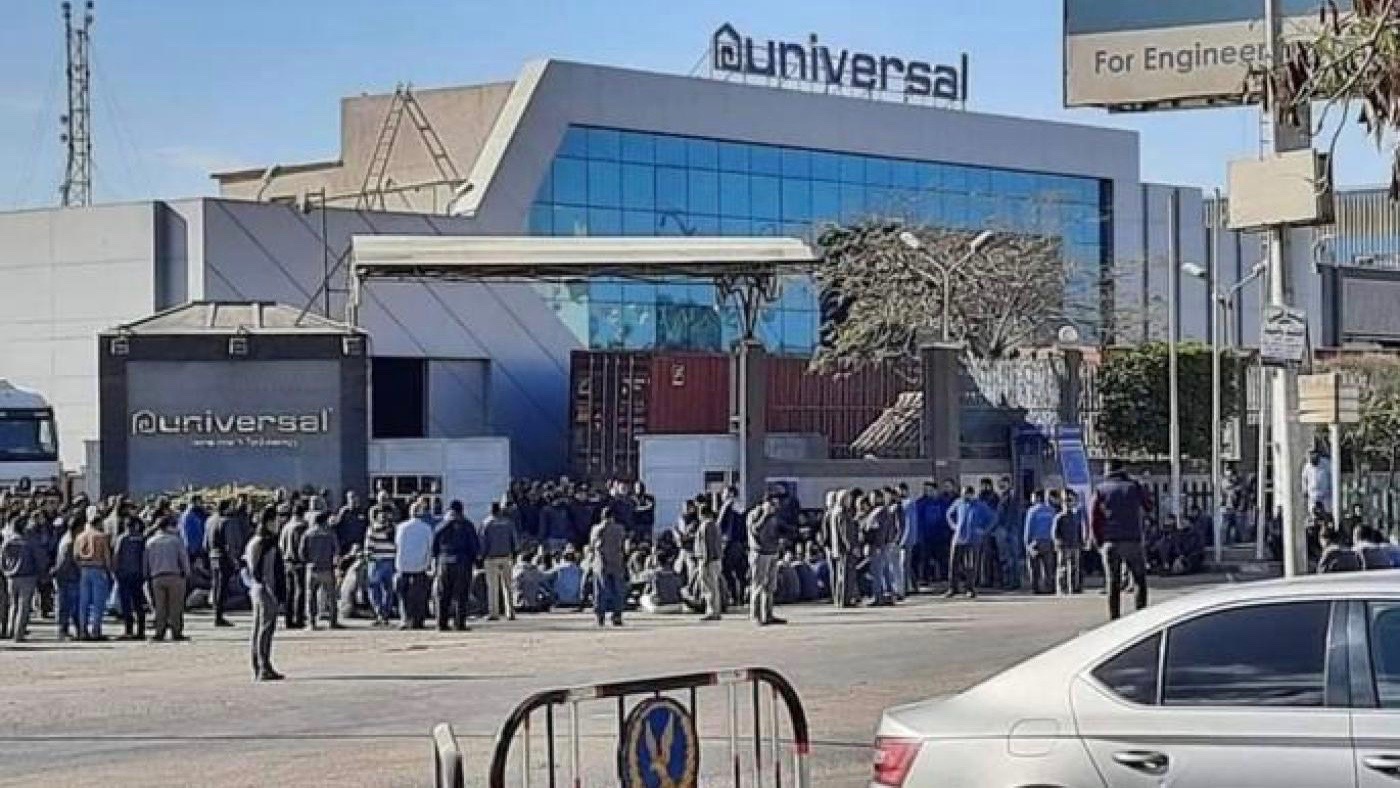Thousands of factory workers in Egypt staged a protest on Tuesday, February 22, following the suicide of a worker who was unable to repay his debts on time due to non-payment of salaries by the employer for months. The protests were brutally suppressed by the central security forces, who used tear gas on the protesting workers while attempting to break up the protests.
This was the third protest within a span of three months outside the factory owned by the Universal Appliances group, situated in the 6th of October city industrial zone in the Giza governorate, 30 kilometers outside of Egyptian capital Cairo.
The deceased worker, identified in news reports as oven factory employee Assem Afify, reportedly killed himself by throwing himself in front of a speeding car on Tuesday morning while he and his fellow workers were waiting for the shuttle transport to arrive to take them to work. The night before, he had reportedly sent several texts to his colleagues from whom he had borrowed money in the last few months to meet his financial needs. Afify had asked his colleagues for forgiveness for not being able to pay back their loans owing to repeated delays in wage payment. According to Mada Masr, Afify was the fourth worker in the Universal group factory to have committed suicide since 2019. Another worker had died after suffering a heart attack while doing an overtime shift at the factory for extra income.
According to news reports, the protesting workers will continue staging protests and sit-ins and organize other collective action even if the authorities and security forces try to disrupt them. The workers have been regularly organizing various forms of collective action over the issue of non-payment of wages and the substandard and unsafe living and work conditions for the workers. The company has reportedly stopped paying wages to its workers since July last year. Its manager claimed that the company’s sales were declining in the wake of fall in the value of the Egyptian pound. The decline in the workers living and working conditions is also attributed to the “structural adjustment” policies imposed by the International Monetary Fund (IMF).
According to reports, at least two sit-ins were staged last year, including one by more than 2,500 workers in September, to protest the delay in overdue salary payments to workers. The protests subsided only after the Ministry of Manpower stepped in and brokered a mutually agreed schedule between the workers and the company management for the payment of salaries. However, until now, only a third of the workers have been paid. Even these workers have received only half of their overdue salaries accrued in the last few months, as per workers’ testimonies.
Similar protest actions have been staged by workers in previous years, with one such workers’ strike resulting in the manpower industry agreeing to pay half the value of the workers’ salaries from its own treasuries for a six-month period. An Egyptian NGO, The Centre for Trade Unions and Workers Services, recorded 8,041 violations of workers’ rights last year, with delayed payments of salaries accounting for 36% of all violations, the highest among the various kinds of workers’ rights violations recorded last year.





